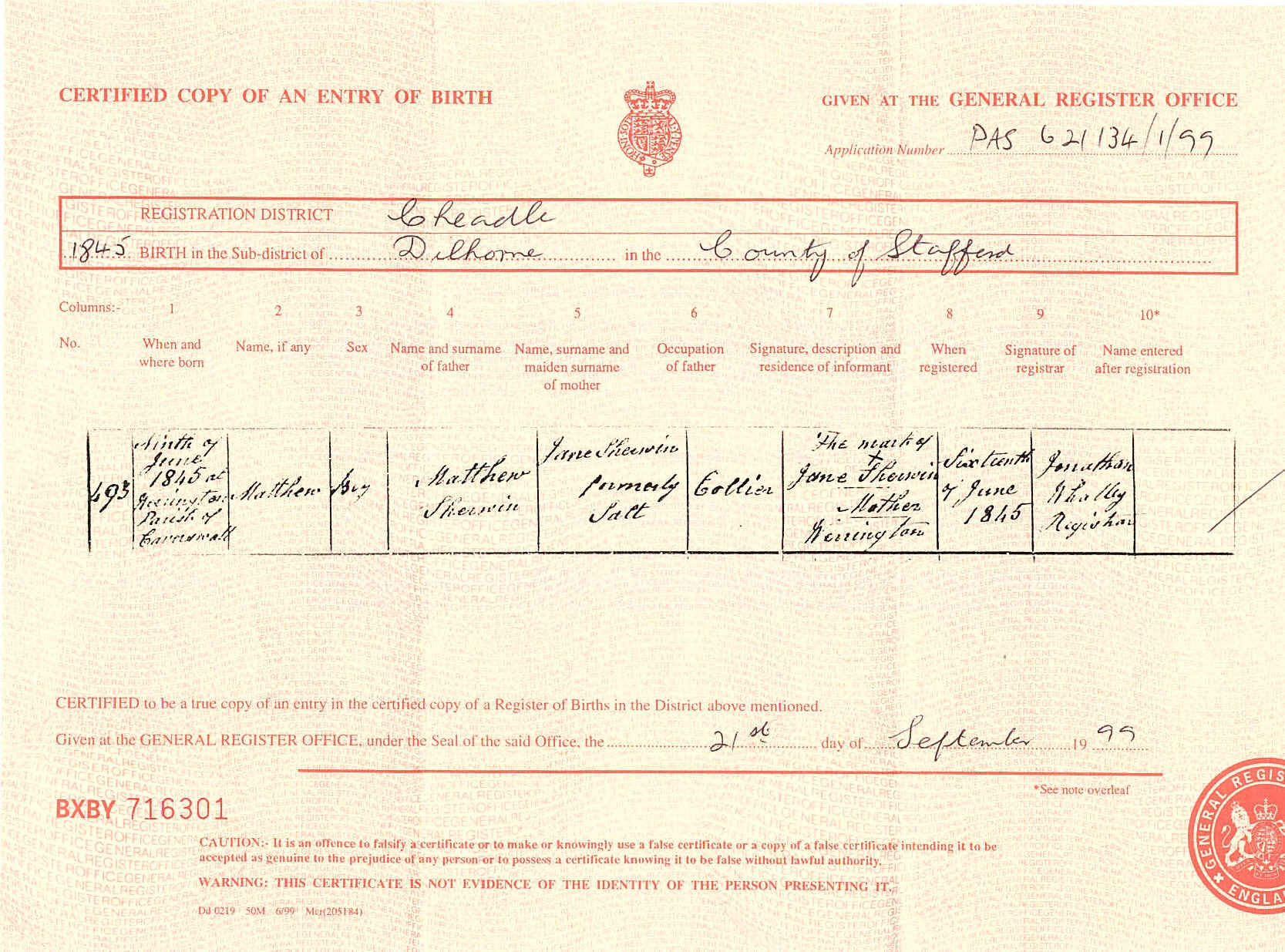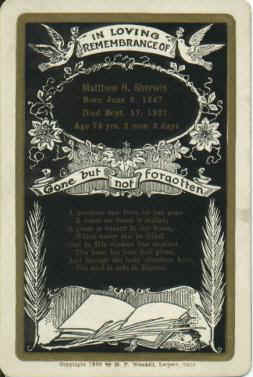|
Records
Obituaries

Birth cert. for Matthew Henry Sherwin, born June 9, 1845 at
Werrington, Parish of Caverswall.
Father was Matthew Sherwin, a Collier. Mother was
Jane Sherwin formerly Salt.

Funeral Card for Matthew H. Sherwin
PERSONAL
ACCOUNTS OF WORLD WAR
I SOLDIER,
ERNEST
SHERWIN
I
lived in Verona, Pennsylvania before I enlisted in the Army. I caught a train at
the Wilkinsburg Station on September 20, 1917, and went to Camp Lee, Virginia.
Our first training guns were cut from a piece of wood. I was then sent to Camp
Gordon, Georgia to complete my training.
Upon
completion of my training, I was assigned to the Supply Company of the 326th
Infantry Division. Before being
sent overseas, I participated in a parade, in which I rode a mule.
I
left New York on the ship “Marutania” and, after six days, landed in
Liverpool, England. We were loaded
on a cattle train and taken to
Southhampton, crossed the English Channel, and arrived in LeHarve,
France.
In LeHarve, we were assigned to a British division in Ypres and Amiens and
remained there until the Division was received by General John “Black Jack”
Pershing where the All—American Force was formed in one sector.
Our
first battle was the St. Mihiel drive. When we reached our objective, we were
sent behind the lines for a rest. Then, after six nights (we marched during the
night and rested during the day), we reached the Argonne Forest. We were
kept in line with our equipment for seventy—two hours while the enemy barraged
the lines, and then we were ordered to advance. During the battles for the Argonne,
Sergeant York of our Division became the greatest hero of the war when he
single—handedly captured 164 Germans and marched them to our headquarters.
While in the Argonne Forest, I witnessed the biggest airplane battle of
the war. The Allies had 150 planes engaged in this battle but were outnumbered
by the Germans. I saw at least fourteen planes shot down in the battle.
I remained in the Argonne
until the Armistice was signed on November 11, 1918. We were to
have a special Thanksgiving dinner served with turkey and all the “fixings,” but
somehow the supplies never arrived. The only “special” addition to our
regular rations was celery.
We were sent behind the lines to await shipment back to the U.S.A. the following
June 1919.
At Bordeaux, we boarded a little freighter named “Eurana” which took
thirteen days to land in New York. At Camp Dix, New Jersey, I was honorably
discharged from the U. S. Army on Friday, June 13, 1919 with the rank of
Sergeant.
***
| 
